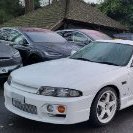Announcements
-
Similar Content
-
Latest Posts
-
Hello guys, Could anyone recommend a reputable mechanic in Victoria, who knows the Q50/V37 hybrids? Thanks
-
Bahahahaha had a feeling it was only a matter of time till a turbo was on the radar
-
By drifter17a · Posted
Lol I changed mine, £90 is cheaper than few k to rebuild -
By 180 wanabe · Posted
I've got to admit that the infotainment looks pretty out of date on the 300c, I'll probably take one for a test drive and then realise its not to be. Shame there seems to be bugger all 400rs / Q50 @ dealers up my way in SE QLD to try one in the flesh. -
So you're now accepting offers of 10% more than the cost of the turbo kit fitted?
-







Recommended Posts
Create an account or sign in to comment
You need to be a member in order to leave a comment
Create an account
Sign up for a new account in our community. It's easy!
Register a new accountSign in
Already have an account? Sign in here.
Sign In Now